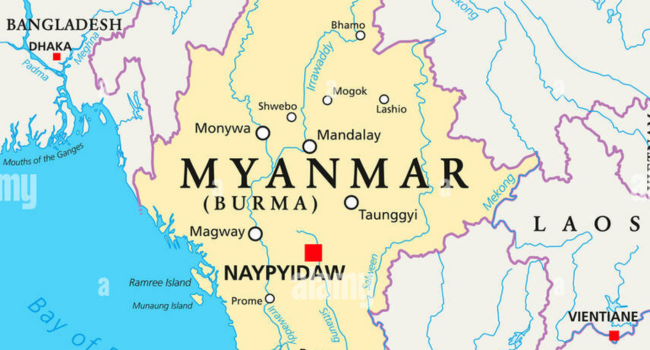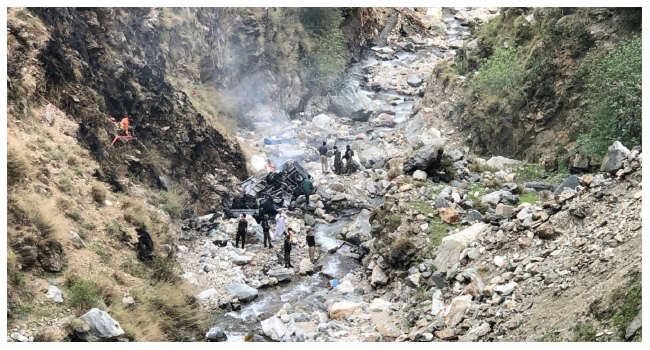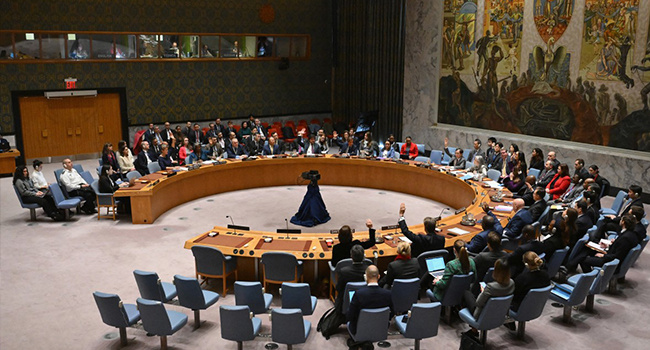
Ayodeji Idowu was already thinking of returning to Nigeria with his wife and two kids when the coronavirus clutched at Wuhan like a vise-grip.
“It was the Spring Festival holiday (China’s biggest festival) and I was supposed to travel the following week,” Idowu says. But his plans had to be cancelled as the Chinese government started to take measures to contain the deadly virus, which has now killed more than 2,000 people across the world. By late January, Wuhan, a city of 11 million, was essentially put on lockdown.
“For food, initially we used to be able to buy things that we wanted at big malls such as Walmart,” Idowu says. “But as the case became more and more severe, with the number of infection cases skyrocketing, they restricted the movement of people to one person per family for three to four days. So when you want to go out, they tick, like a register, to show that you are the only person who has gone out from your family in the last four days.
“Then it became more severe and even Walmart was not allowed to entertain individual customers. We were not allowed to leave our residencies. For example, I have not been able to step out of my estate’s gate since the newer restrictions came into being about two weeks ago. What we then do is to use Wechat groups; and then we have coordinators on the group who collect our orders. Whatever it is that you want to buy, you post it in the group and it would be delivered the next day.
In the video above, Mrs Idowu narrates how the family manages to get food and other needed items.
“To receive your order, you come to the gate, stand about ten metres away, have your temperature checked, and then they hand over your items and you return to your apartment.”
So far, the arrangement has worked enough to keep the Idowus alive and well. But the isolation is already taking its toll.
“My wife is . . . quite worried because of getting food for our children,” Idowu, who completed his doctorate studies in 2018, says. “Since the new restrictions, we have not been able to get them the kind of food that they normally eat. Now we are forced to take whatever is available in the group purchase, which is basically catering to Chinese tastes, not foreigners’.”

Bring Us Back
On February 18, the Nigerian Students Association in Wuhan released a statement seeking to “dispel the notion” that Nigerians in China didn’t want to return home in the wake of the coronavirus’ spread. “We are in constant fear because an uncertainty looms about the general situation of things,” the group said.
Since the outbreak started, countries such as Australia, the United States, India and others, have evacuated their citizens from China. The Student group was asking the same of its government.

Days before the statement went public, members of the House of Representatives had flatly rejected the idea of evacuation. According to the lawmakers, China has better facilities to handle the situation than Nigeria.
But it seemed the Nigerians in China still held out hope. Many spoke to journalists, reiterating their wish to be ferried back home.
“As each day passes, the chances of evacuation slip by,” one Nigerian student told American news media, CNN. “It’s the total lack of support and sense of abandonment by your country.”
Reacting to the cries of abandonment, Minister of State for Health, Olorunnibe Mamora, said the government was aware of the situation but didn’t want to make decisions that could “create panic.”
“The Chinese ambassador here in Nigeria is constantly in touch with us at the Ministry of Health,” Mamora said at an ECOWAS meeting in Bamako. “We are also in touch with Nigeria ambassador in China. One of the reasons he is representing Nigeria in China is to monitor the health of our citizens in China.

“If the need arises to evacuate, we will do that; but we don’t want a situation where we will create panic. This is no time for fear of stigmatisation. This is the time for science and research. It is not only Nigerians that are in self-isolation in China but even the Chinese citizens. Anyone leaving China now will be tested and if found with the virus, you will not be allowed to leave in order not to spread the virus.”
After the lawmakers rejected the motion, the Nigerian ambassador to China, made a personal donation of 20,000 RMB to Nigerians in Wuhan to assist in procuring foodstuffs and medical supplies. Then on February 27, the federal government made a donation of 235,000 RMB.
The money “comes to about $500 per person for 66 people,” Idowu notes. Since they received the money, “I have noticed some form of brightness in the group (chats) and good words for the country. It was unlike the sadistic nature of comments that we used to receive earlier. But if the situation continues to linger, things might go back to the way it used to be. Although they’ve received the money, they still want to be evacuated.”
Keeping The Faith
“To some extent, I can say I am disappointed,” Idowu says of the federal government’s handling of its citizens’ fates in Wuhan. “But I also have some understanding of what the fears of the government may be. The Minister of State, Mamora, has said their fears were panic and discrimination against those who may be coming back into the country from Wuhan. However, I feel that as a government, they must still take the responsibility to address those concerns – it is not for me to do that. So that’s where my disappointment is coming in from. I understand the challenges, but I expect that they should be able to overcome those challenges.”
Despite the disappointment, Idowu explains that the group’s mood has been generally upbeat.

“Trust the Nigerian spirit, even in the midst of the disappointment, people would still make fun, try to make jest over it; we try to encourage ourselves. Although we know there are some quite severe cases – one of us is critically ill, something not related to coronavirus at all – and he is desperately in need of medical attention. So someone like that, I cannot claim to be on the same level of desperation for evacuation. Because of the situation, he has not been able to access medical care. There are a few other people like that. I understand there is a pregnant lady, although I have not been able to confirm that myself since I don’t know all the Nigerians who are here. But I understand there is a lady who is pregnant and close to her day of delivery.
“But the general mood is okay and calm, and people are beginning to accept that maybe the government will not evacuate. And normal Nigerian spirit, you begin to adjust and just try to suppress whatever ill-feeling you have and make life okay for yourself. Some people simply believe that they are on their own.”
Remembering Home
Idowu has lived in Wuhan for ten years. After receiving his PhD, he set up a consulting company in the city and lectures part-time in one of the universities in town.
“I have the support of my wife and kids,” he says. “When anyone feels down, we have the other person to provide some sort of psychological support. I can imagine if I was alone, like a student living alone, it is very easy to move from boredom to frustration to depression, especially if you are not able to find something to keep yourself in good spirits.”
But Idowu is also thinking about home, about what would happen if a Nigerian city like Lagos is overrun by the coronavirus. (Nigeria confirmed its first case on February 28).

“I can’t believe that Wuhan will suddenly become what it has become today,” Idowu says. “I have lived in Wuhan for ten years. And I know how effective the governance in Wuhan is, so if in a system where they have effective governance and they can be caught unawares, you can imagine how it is going to be for us when sometimes we don’t take things very seriously.
“We know that a lot of Chinese people have died. Families have been torn apart. And even if people are not dying, we cannot go out, the city is not the way it was any longer. Many months after this thing is over, it still won’t be the same. Now we don’t move close to one another. You can imagine living in Lagos and not moving close to people. How do you live in Lagos and not move close to people?”




